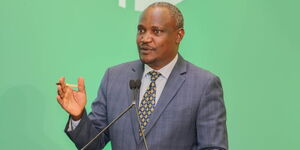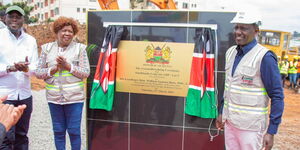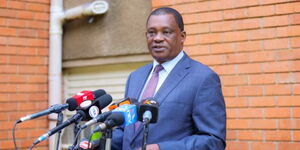Treasury Cabinet Secretary John Mbadi has dismissed claims that the World Bank is behind the push for electronic procurement, stating that the system is run by the government jointly with an Indian firm.
Appearing before the National Assembly's Committee on Implementation of the Constitution on Thursday, the CS said the rollout of the system began as early as 2018 and that there was no World Bank participation in its acquisition.
Mbadi clarified that the government later purchased the system in 2022 for Ksh387 million to phase out the manual system, which he claimed encouraged graft.
However, during the meeting, the lawmakers expressed concerns over the system's implementation, arguing that the National Treasury rushed the rollout of the eProcurement system.
They insisted the government should allow both manual and electronic procurement systems to operate concurrently while the ministry builds user capacity nationwide.
“CS Mbadi, why is the National Treasury insisting that all procurement processes must strictly be carried out through this system while the law provides for both a manual and an electronic system?” MP Mark Mwenje questioned.
The Treasury CS, however, put up a spirited defence for the system, which he termed “an effective tool against graft”.
While acknowledging that the law permits both systems, Mbadi emphasised that the government had decided to roll out the electronic procurement system to curb wastage and graft.
“We have not invented a new law. We are implementing the available law. When the law gives you either-or, you choose the best. The manual procurement system is archaic, outdated and promotes wastage,” Mbadi emphasised.
“Honourable members, I committed during my approval hearings that I would introduce particular reforms if appointed to office, including e-procurement,” he added.
Mbadi warned that President William Ruto's administration was operating in a tight fiscal space with limited options for increasing taxes.
"We have to seal all loopholes for pilferage of public resources, key among them the public procurement process, if we are to meet our obligations”, the CS reiterated.












